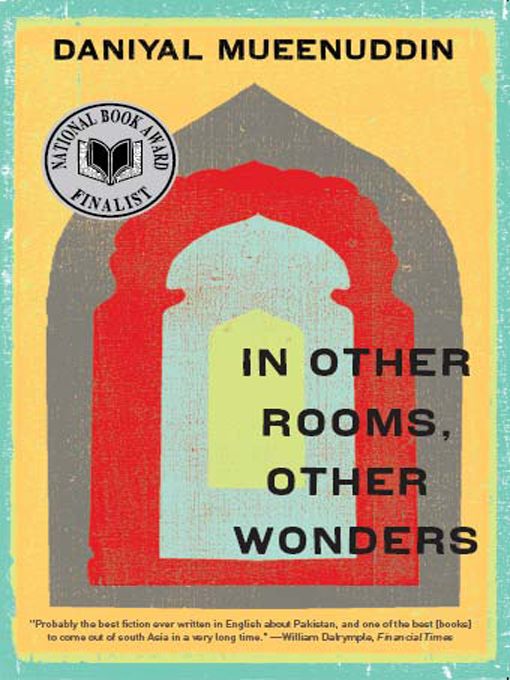
In Other Rooms, Other Wonders
- اطلاعات
- نقد و بررسی
- دیدگاه کاربران
نقد و بررسی

Starred review from November 17, 2008
In eight beautifully crafted, interconnected stories, Mueenuddin explores the cutthroat feudal society in which a rich Lahore landowner is entrenched. A complicated network of patronage undergirds the micro-society of servants, families and opportunists surrounding wealthy patron K.K. Harouni. In “Nawabdin Electrician,” Harouni’s indispensable electrician, Nawab, excels at his work and at home, raising 12 daughters and one son by virtue of his cunning and ingenuity—qualities that allow him to triumph over entrenched poverty and outlive a robber bent on stealing his livelihood. Women are especially vulnerable without the protection of family and marriage ties, as the protagonist of “Saleema” learns: a maid in the Harouni mansion who cultivates a love affair with an older servant, Saleema is left with a baby and without recourse when he must honor his first family and renounce her. Similarly, the women who become lovers of powerful men, as in the title story and in “Provide, Provide,” fall into disgrace and poverty with the death of their patrons. An elegant stylist with a light touch, Mueenuddin invites the reader to a richly human, wondrous experience.

Starred review from December 1, 2008
The pangs of individuals and cultures subject to established inequality and radical change are expertly analyzed in Pakistani author Mueenuddin 's impressive debut collection.
The eight stories explore relationships among scions of the super-rich Harouni farming family, living near Lahore —those who serve it and those who marry (often unhappily) into it. The stories are Chekhovian in their grasp of indigenous detail and subtle understanding of their characters ' complex experiences and destinies. In "Nawabdin Electrician " (one of two stories that previously appeared in the New Yorker), a resourceful Mr. Fixit, who 's also the overburdened father of several marriageable daughters, patches together a living from his genius for mechanical improvisation, suffers grievous losses when he 's robbed and beaten, yet, through sheer force of will, perseveres. Echoes of Irish storyteller Frank O 'Connor 's keen eye for quotidian minutiae and Doris Lessing 's fatalistic irony are sounded in the title story 's understated portrayal of an indigent woman who "rises " to security as mistress to the elderly Harouni patriarch, but, upon his death, loses all she has gained; the tale of a judge 's servant whose family turns an act of horrific abuse to its profit ( "About a Burning Girl "); and a harrowing story ( "A Spoiled Man ") about an aging workman whose painstakingly earned chance at happiness is ruined by a do-gooder 's misunderstanding of the traditions that fix him irrevocably in his place. Even better are the longer stories: In "Lily, " the chronicle of a vain party girl 's ingenuous hope of reclaiming respectability, as the wife of an industrious wealthy farmer 's son, is dashed as their utter incompatibility uncoils and shows itself; and the magnificent "Provide, Provide, " wherein the ambitious Zainab insinuates herself among the Harounis, abandoning her weakling husband to marry a well-placed household servant, only to lose everything when the force of family obligation shoulders aside all her scheming.
Superlative stories from an accomplished stylist who looks as if he may well have a great novel in him.
(COPYRIGHT (2008) KIRKUS REVIEWS/NIELSEN BUSINESS MEDIA, INC. ALL RIGHTS RESERVED.)

Starred review from January 1, 2009
Mueenuddins story collection is a remarkably confident debut. Although the eight stories are broadly linked by a common Pakistani community, the narratives are diverse in both content and approach. The first storieswritten in an unsparing, declarative stylefollow the poorer members of the feudal network. Nawabdin Electrician, selected by Salman Rushdie for the newest Best American Short Stories anthology, is particularly severe in its worldview, though its protagonist is warm, even jovial. When Mueenuddin turns his attention to the wealthythe gulf between rich and poor is starkly dramatizedhis prose grows more indulgent, especially in the stories Our Lady of Paris and Lily. Although the latter develops slowly, with dialogue and scenes that strain to come off the page, the libertine turned wifes reflections on her husband are startling and familiar and deeply sad: She considered the tone in which Murad had told the aphorism about the beginning and the ending of loveexposed, hardened, ironica tone that couples settle into when they are broken and at odds forever, but bound.(Reprinted with permission of Booklist, copyright 2009, American Library Association.)




دیدگاه کاربران